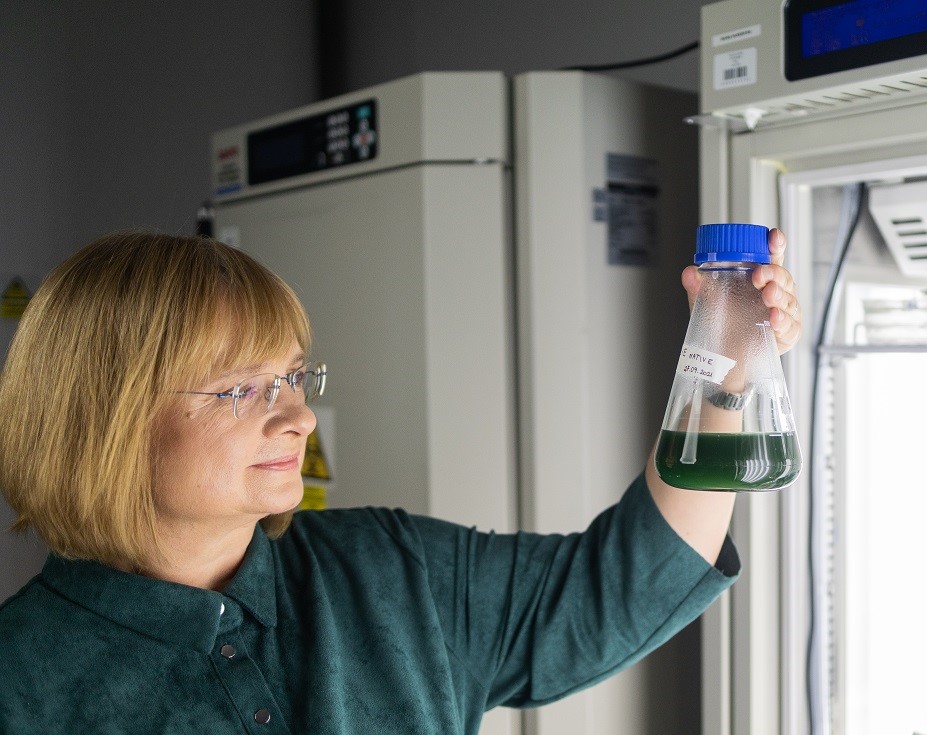Researchers from the University of Warsaw’s Centre for New Technologies (CeNT UW) have grown a new strain of an extremophilic microalga. It can be used in the fuel and pharmaceutical industries, in environmental protection, and in research related to genetics, biology and cell evolution.
The alga could be a rich and inexpensive source of large amounts of biomass for biofuel production and a potential natural source of hydrogen fuel. It will prove useful in purifying aquatic environments and wastewater from heavy metal compounds. It may also find applications in the pharmaceutical industry, which develops drugs based on the mass production of selected proteins – for example, mRNA-based vaccines.
Cyanidioschyzon merolae 10D is a unique species of alga that thrives in extreme aquatic conditions, where a number of highly toxic agents are present. In the wild, this alga lives in hot, acidic springs of volcanic origin with a pH close to zero and a temperature of more than 50 degrees Celsius.
The researchers cultured C. merolae 10D cells by gradually changing the water conditions by increasing the pH. The new strain produces components in abundance that can potentially be used in the fuel industry. It includes unsaturated free fatty acids, proteins and polysaccharides. It also shows higher productivity of valuable components compared to algal strains currently used in biofuel production, e.g. in Japan.
Made under the direction of Prof Joanna Kargul from the Laboratory of Photosynthesis and Solar Fuels, the discovery has great commercial potential. The researchers want to launch R&D projects to clarify the conditions under which the new strain could be used in the production of biofuels, as well as lead to the use of the discovery in bioremediation, the treatment of wastewater from heavy metals and their recovery.
Arkadiusz Słomczyński





